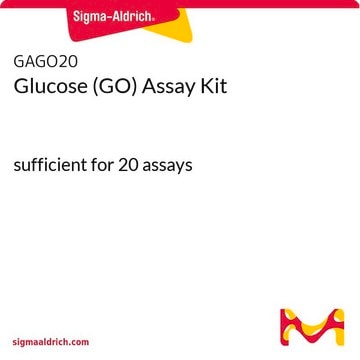The supplier advises that they have not yet validated any lysis buffers for use with cell samples in conjunction with this kit. Additionally, they recommend using an untreated, clear, flat-bottom plate for colorimetric measurements. Therefore, it would be preferable to transfer the samples to such a plate for running the assay.
Kluczowe dokumenty
MAK317
Sorbitol Dehydrogenase Assay Kit
sufficient for 100 colorimetric tests
Wybierz wielkość
2070,00 zł
Wybierz wielkość
About This Item
2070,00 zł
Polecane produkty
metoda wykrywania
colorimetric
powiązane choroby
endocrinological disorders, diabetes; gastrointestinal diseases
temp. przechowywania
−20°C
Powiązane kategorie
Opis ogólny
Cechy i korzyści
Przydatność
Zasada
Hasło ostrzegawcze
Warning
Zwroty wskazujące rodzaj zagrożenia
Zwroty wskazujące środki ostrożności
Klasyfikacja zagrożeń
Eye Irrit. 2 - Flam. Liq. 3 - Met. Corr. 1 - Skin Irrit. 2 - STOT SE 3
Organy docelowe
Respiratory system
Kod klasy składowania
3 - Flammable liquids
Temperatura zapłonu (°F)
75.2 °F - closed cup
Temperatura zapłonu (°C)
24 °C - closed cup
Wybierz jedną z najnowszych wersji:
Certyfikaty analizy (CoA)
It looks like we've run into a problem, but you can still download Certificates of Analysis from our Dokumenty section.
Proszę o kontakt, jeśli potrzebna jest pomoc Obsługa Klienta
Masz już ten produkt?
Dokumenty związane z niedawno zakupionymi produktami zostały zamieszczone w Bibliotece dokumentów.
-
What are the recommended methods for homogenizing or lysing cells in a 96-well plate for the MAK317 Sorbitol Dehydrogenase assay kit? The manual advises against using proteolytic enzymes and suggests using a rubber policeman, which is not suitable for a 96-well plate. Are there any recommendations for a mild lysing buffer with minimal impact on the assay outcome? Additionally, is it possible and recommended to run the assay in the same 96-well plate, or is transferring the samples to a new plate necessary?
1 answer-
Helpful?
-
Active Filters
Nasz zespół naukowców ma doświadczenie we wszystkich obszarach badań, w tym w naukach przyrodniczych, materiałoznawstwie, syntezie chemicznej, chromatografii, analityce i wielu innych dziedzinach.
Skontaktuj się z zespołem ds. pomocy technicznej







